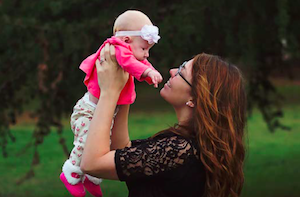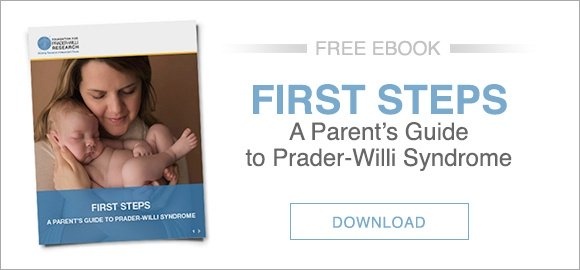 When you first receive your child’s Prader-Willi syndrome (PWS) diagnosis, it can feel as if his or her whole life is flashing in front of you, with an infinite list of concerns. Based on the experiences of parents involved in FPWR, here's a suggested “to-do” list of steps to take in the first months/year after PWS diagnosis, to help you tackle immediate priorities.
When you first receive your child’s Prader-Willi syndrome (PWS) diagnosis, it can feel as if his or her whole life is flashing in front of you, with an infinite list of concerns. Based on the experiences of parents involved in FPWR, here's a suggested “to-do” list of steps to take in the first months/year after PWS diagnosis, to help you tackle immediate priorities.
1. Love your baby! Provide stimulation and valuable input into your baby’s sensory system by holding him, bouncing her, swaying her, talking and singing with him, massaging her, and waking your baby at regular intervals for feedings. Our babies could sleep most of the day and night uninterrupted, don’t limit yourself to loving them while they are awake!
2. Stabilize feeding and weight gain. Consider working with a team of professionals, including a speech therapist and nutritionist, who can provide valuable advice about feeding techniques and equipment such as bottles and nipples.
3. Begin growth hormone therapy for your child. There is evidence that there are significant benefits to starting growth hormone (GH) as early as possible. Start by making an appointment with an endocrinologist who is familiar with Prader-Willi syndrome and growth hormone therapy.
4. Implement early intervention therapies, which may include occupational, physical, and speech therapy.
5. Build your parent network. You will discover quickly how welcoming, helpful, and compassionate the Prader-Willi family is. We celebrate each other’s children’s successes, support one another through the challenges, and share information about best practices and treatments to help build our collective knowledge about managing PWS effectively. You can start by connecting with the FPWR Facebook group.
6. Consult other specialists. Depending on your child’s needs, you may need to be seen by additional specialists, such as a pulmonologist, gastroenterologist, ENT specialist, nutritionist, geneticist, or developmental pediatrician.
Finally, keep in mind these words from Megan Catalfamo, mom to Benjamin: “My PWS mantra is (no pun intended), ‘Don’t bite off tomorrow’s troubles today’. When I find myself distracted, worrying about my son’s life five, ten, fifteen, or twenty-five years from now, I remind myself that his future is yet unwritten. That the problems or issues I’ve read about online may not become his issues. That I can significantly affect his outcomes by diligently coordinating his care, by arming myself and his team of doctors with the most current information, and by helping advance the research that could identify cures or treatments for the scariest stuff. Remembering to stay in the present helps me redirect energy to productive activities, focus on what needs to be done now, face the unknown with a positive outlook, and most importantly, enjoy my beautiful baby boy today and every day.”
For more helpful information and advice from parents who have been through the same challenges you're facing, download First Steps: A Parent’s Guide to Prader-Willi Syndrome.








